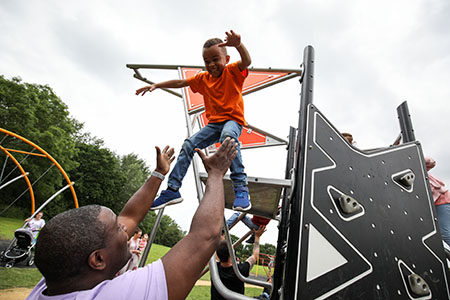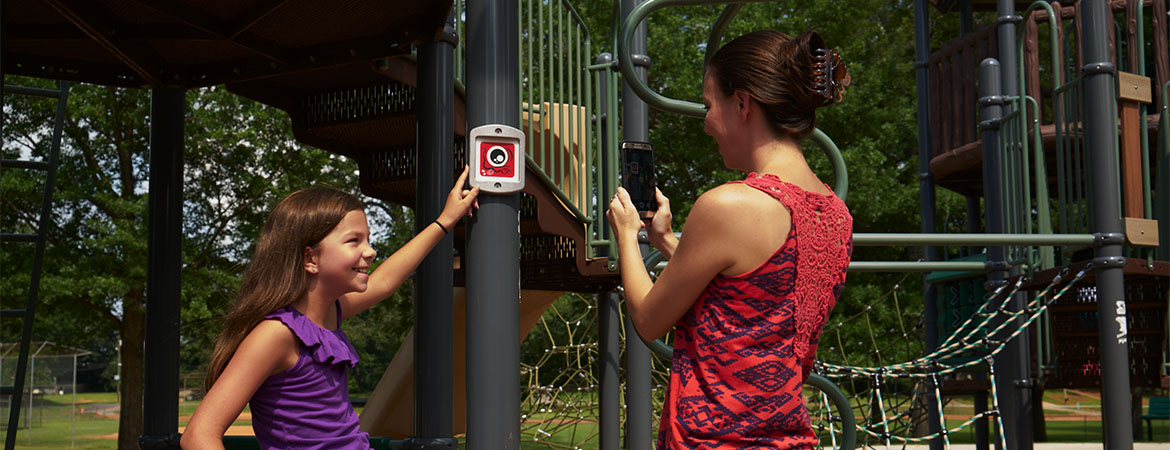Biba technology makes playgrounds even more fun for children
Biba enables parents to use their smartphones as a tool to encourage their kids to swap sedentary screen-time at home for fun and exercise at the local park.
Vancouver’s outdoor lifestyle has turned out to be a potent marketing tool for Biba Ventures Inc. (Biba), as the young, west coast company pitches its playground technology around the world.
“When you’re selling a healthy, digital lifestyle and people ask where you’re from, and you say Vancouver, they go: ‘Oh yes, that makes sense’,” says Matt Toner, Biba’s chief executive. “Mountains and skiing and families going to the park: that’s Vancouver—and that’s our image.”
 Biba pitches its playground technology around the world.
Biba pitches its playground technology around the world.In the five years since Biba was founded, it has transformed more than 3,600 playgrounds in hundreds of cities as far removed in size and location as Dublin, Ireland; Perth, Australia; Rolleston, New Zealand; Santiago, Chile; and Scranton, Pennsylvania.
Most Biba installations are in North America, with more than 70 in Los Angeles, California, alone. But the company has rapidly expanded its global reach in the past two years, adding contracts in Australia, Chile, Ireland, Israel, New Zealand, Singapore and the United Kingdom.
Biba—derived from the Japanese word for playground—enables parents to use their smartphones as a tool to encourage their kids to swap sedentary screen-time at home for fun and exercise at the local park.
The company’s business model was inspired, in part, by Vancouver’s decision to set up Wi-Fi hotspots in municipal parks. Under contracts with municipalities, parks boards and landscape architects, Biba adds easy-to-install augmented reality markers to existing playground equipment. Parents scan the markers with a smartphone app to activate games and exercises.
In one game, players collect imaginary characters, known as Biblets, at various points on the playground. In another, playground equipment becomes a grand prix race course. Players typically spend 80% of their time on physical activity and just 20% looking at a screen. Parents control the smartphone at all times.
Biba also plans to bring its technology to indoor play areas, such as shopping malls, family restaurants and, as Toner puts it, “wherever families come together around physical fun.”
Among the keys to Biba’s success has been its partnership with the Trade Commissioner Service and its capacity to identify opportunities and open doors abroad. “We’ve found them to be an excellent partner and door opener,” Toner says. “We use them quite strategically in that way.”
For Biba’s Toner, a partner is often the key to victory—in games and in business.
- Date Modified:
